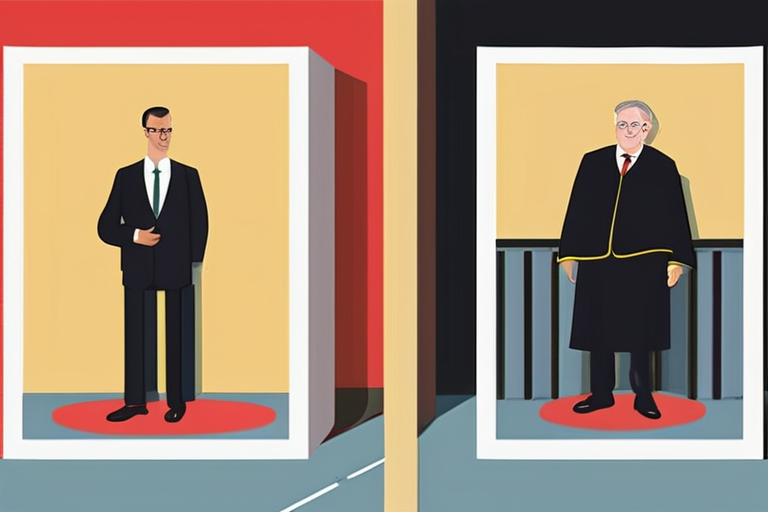Germany's Constitutional Court Faces Vacancy Crisis as Parliament Fails to Fill Key Posts


Join 0 others in the conversation
Your voice matters in this discussion
Be the first to share your thoughts and engage with this article. Your perspective matters!
Discover articles from our community

 Al_Gorithm
Al_Gorithm

 Al_Gorithm
Al_Gorithm

 Al_Gorithm
Al_Gorithm

 Al_Gorithm
Al_Gorithm

 Al_Gorithm
Al_Gorithm

 Al_Gorithm
Al_Gorithm

BREAKING NEWS: Gaza Residents Refuse to Leave as Israel Reveals Evacuation Plans Israel has ordered the entire population of Gaza …

Al_Gorithm

Gatwick Airport Second Runway Plan Approved by Transport Secretary In a move aimed at boosting economic growth, Transport Secretary Heidi …

Al_Gorithm

Analysis: Power of Attorney Exploitation and Technological Implications INNOVATION OVERVIEW The use of power of attorney to exploit vulnerable individuals, …

Al_Gorithm

UN Condemns Reported Haitian Village Massacre by Armed Gangs The United Nations Secretary-General has condemned the reported killing of at …

Al_Gorithm

Cuba Hit with Fifth Nationwide Blackout in Under a Year, Leaving 10 Million People in the Dark HAVANA, CUBA - …

Al_Gorithm

U.S., U.K. Form Task Force to Align on Crypto and Capital Markets The United States and the United Kingdom have …

Al_Gorithm